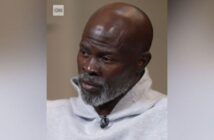Richard Roundtree, the iconic actor renowned for portraying the suave private detective in the groundbreaking “Shaft” film series, has died at 81.
His longtime manager Patrick McMinn, confirmed that Roundtree succumbed to pancreatic cancer at his residence in Los Angeles on Tuesday. The legendary actor, who also battled and triumphed over breast cancer in 1993, underwent a double mastectomy.
“Richard’s work and career served as a turning point for African American leading men,” McMinn said. “The impact he had on the industry cannot be overstated.”
Roundtree’s legacy extended beyond the 1970s classics. He reprised his iconic role in the 2000 “Shaft” film, sharing the screen with Samuel L. Jackson, who portrayed his nephew. The film was a revival that aimed to captivate a wider audience, and Roundtree and Jackson returned in the same roles for the 2019 rendition starring Jessie T. Usher.
In a heartfelt social media post, Jackson hailed Roundtree as the “prototype” and praised him as “the best to ever do it.” Jackson added, “SHAFT, as we know it is [and]will always be his Creation. His passing leaves a deep hole not only in my heart, but I’m sure a lotta y’all’s, too.”
Born on July 9, 1942, in New Rochelle, New York, to John and Kathryn Roundtree, the young Roundtree showed promise in athletics and academics. He attended New Rochelle High School, earning recognition for his contributions to the school’s nationally ranked football team. In 1961, Roundtree’s athletic prowess earned him a scholarship to Southern Illinois University in Carbondale, Illinois. However, his passion for acting and modeling prompted him to leave school in 1963.
Roundtree’s career took off when Eunice Johnson of Ebony magazine recruited him to model at the Ebony Fashion Fair in 1963. He joined the Negro Ensemble Company in 1967, where he delivered a memorable performance as boxing legend Jack Johnson in “The Great White Hope.”
The pivotal moment in Roundtree’s career came in 1971 when he landed the role of Shaft in the Gordon Parks-directed film.
The film’s success catapulted Roundtree to stardom, culminating in two sequels, “Shaft’s Big Score” (1972) and “Shaft in Africa” (1973). In recognition of his exceptional talent, Roundtree received the Golden Globe Most Promising Newcomer Award in 1972.
According to the HistoryMakers, throughout the 1970s and 1980s, Roundtree graced the silver screen in an array of films, including “Earthquake” (1974), “Escape to Athena” (1979), “A Game for Vultures” (1979) and “Day of the Assassin” (1979). He also made a memorable appearance in the 1977 ABC television miniseries “Roots.”
In the ensuing decades, Roundtree continued to leave an indelible mark in the entertainment industry, appearing in various television series such as “Soul Food,” “Desperate Housewives,” “Heroes” and “Grey’s Anatomy.” He secured a recurring role in the 2013 television show “Being Mary Jane” alongside Gabrielle Union and Margaret Avery. Roundtree further graced Fox’s television series “Star” with his presence in 2017 and 2018.
In 1993, Roundtree faced a rare form of male breast cancer with unwavering determination. His resilience led him to become a prominent advocate for breast cancer awareness, lending his voice to the Susan G. Komen Foundation and the Know Your Score Men’s Health Initiative. Roundtree earned numerous awards, including the MTV Lifetime Achievement Award for his iconic portrayal of Shaft, an Image Award nomination in 1998, a Peabody Award in 2002, and a Black Theater Alliance Lifetime Achievement Award in 2010.


